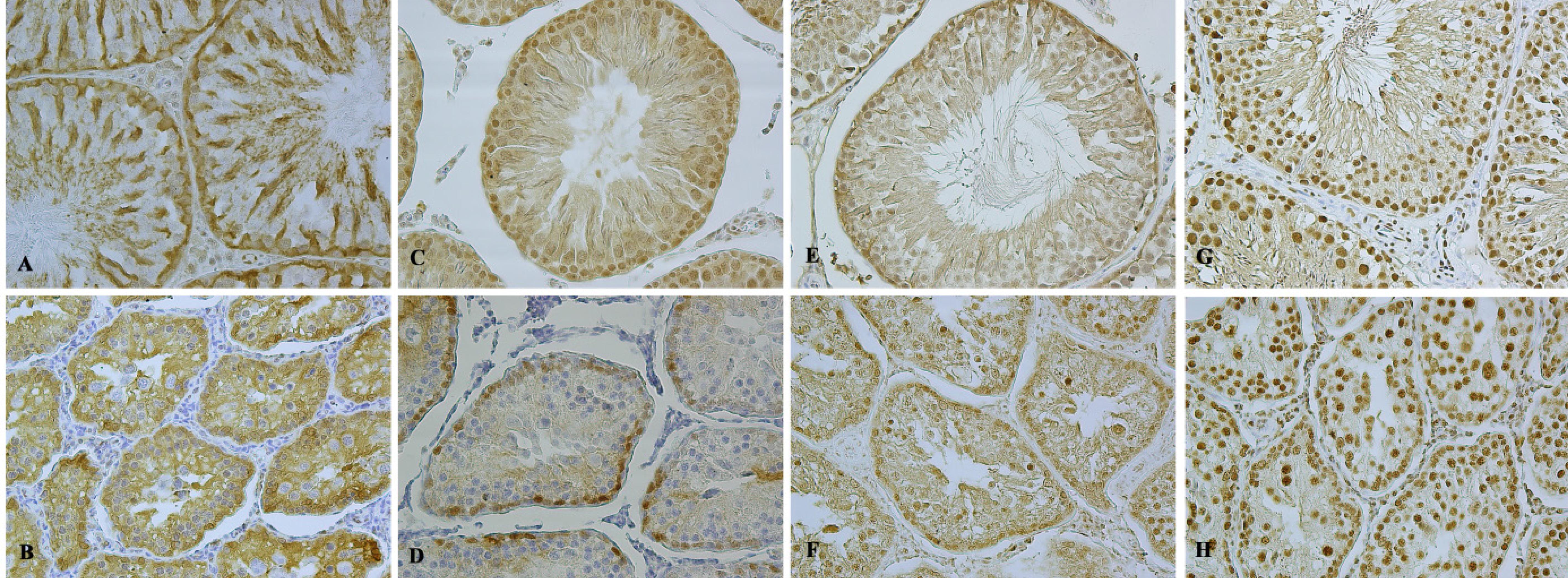PURPOSE:
To evaluate the alterations of two mitogen-activated protein kinases (MAPK)s, extracellular signal regulated kinase (ERK) and c-Jun NH2 terminal kinase (JNK), in the testes of male rats with experimental diabetes.
METHODS:
Twenty males Sprague-Dawley rats were randomly divided into a control group (n=8) and a diabetes group (administration of 40 mg/kg/day streptozotocin (STZ) for five sequential days, n=12). After six weeks, testicular biopsy samples were obtained for light microscopy and immunohistochemical methods.
RESULTS:
The PCNA (proliferating cell nuclear antigen) index was significantly decreased in the diabetes group (p=0.004) when compared to the control group. Both total (t)-ERK and phosphor (p)-ERK immunoreactivities were significantly decreased in the diabetes group (p=0.004, p<0.001, respectively). The t-JNK immunoreactivity was unchanged in both groups (p=0.125), while p-JNK immunoreactivity was significantly increased in the diabetic group (p=0.002).
CONCLUSIONS:
The decrease of androgen levels in the course of diabetes may contribute to the decrease of the immunoreactivities of t-ERK and p-ERK. JNK may be activated due to the changes in various cytokines and chemochines that participate in the oxidative stress process of diabetes. Therefore, testicular apoptosis may occur and lead to infertility associated with diabetes.
Diabetes mellitus; Mitogen-Activated Protein Kinases; Extracellular Signal-Regulated Kinases; JNK Mitogen-Activated Protein Kinases; Streptozocin; Testes; Rats


